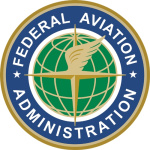- Industry: Government
- Number of terms: 35337
- Number of blossaries: 0
- Company Profile:
Airspace that is uncontrolled, except when associated with a temporary control tower, and has not been designated as Class A, Class B, Class C, Class D, or Class E airspace.
Industry:Aviation
Weather advisory concerning convective weather significant to the safety of all aircraft, including thunderstorms, hail, and tornadoes.
Industry:Aviation
It is airspace in which air traffic control has no authority or responsibility to control air traffic; however, pilots should remember there are VFR minimums which apply to this airspace.
Industry:Aviation
An authorization for pilots to use GPS avionics under IFR for flying designated existing nonprecision instrument approach procedures, with the exception of LOC, LDA, and SDF procedures.
Industry:Aviation
Categories of instrument approach procedures allowed at airports equipped with the following types of instrument landing systems:
ILS Category I: Provides for approach to a height above touchdown of not less than 200 feet, and with runway visual range of not less than 1,800 feet.
ILS Category II: Provides for approach to a height above touchdown of not less than 100 feet and with runway visual range of not less than 1,200 feet.
ILS Category IIIA: Provides for approach without a decision height minimum and with runway visual range of not less than 700 feet.
ILS Category IIIB: Provides for approach without a decision height minimum and with runway visual range of not less than 150 feet.
ILS Category IIIC: Provides for approach without a decision height minimum and without runway visual range minimum.
Industry:Aviation
An instrument consisting of a curved glass tube, housing a glass ball, and damped with a fluid similar to kerosene. It may be used to indicate inclination, as a level, or, as used in the turn indicators, to show the relationship between gravity and centrifugal force in a turn.
Industry:Aviation
A radio navigation system that utilises master and slave stations transmitting timed pulses. The time difference in reception of pulses from several stations establishes a hyperbolic line of position, which can be identified on a LORAN chart. A fix in position is obtained by utilising signals from two or more stations.
Industry:Aviation
The average distance from the leading edge to the trailing edge of the wing.
Industry:Aviation
